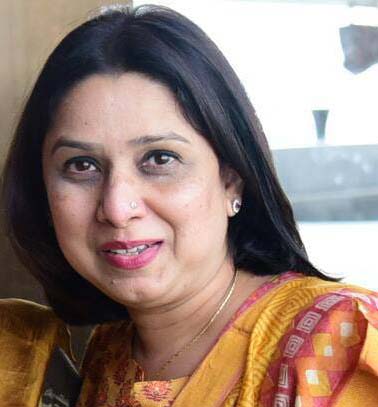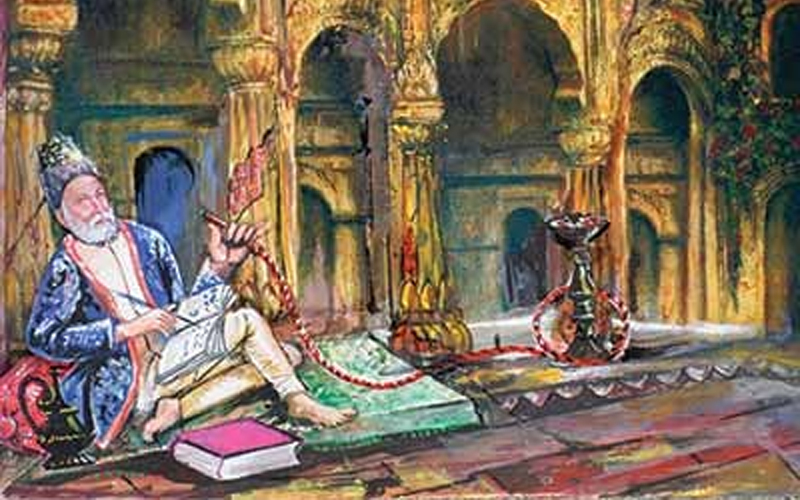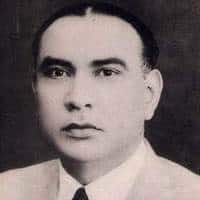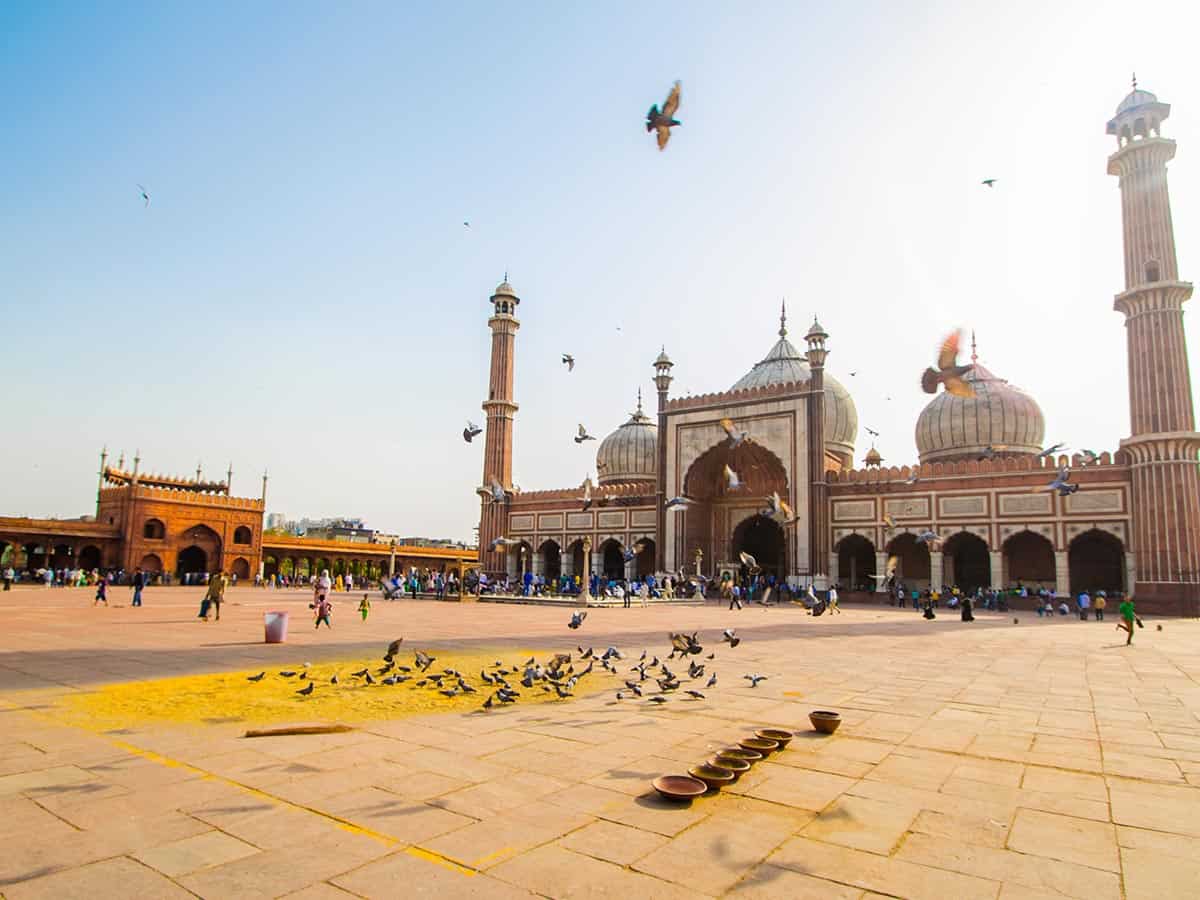
Salma Ahmed Farooqui
In the Quranic concept of human life, there are two parts—animal life and divine life. God has bestowed life into all living beings in the world but has put his divine self only in human beings which have made all humans attain a higher status. God has breathed life into human beings and bestowed them with all the mental faculties such as sight, hearing, intelligence, understanding etc. Whereas animals do not have all these attributes from God which in turn make humans superior to animals and distinguish them from animals. When a human being dies, his soul immediately leaves him but the process of physical decomposition of the body takes time.
But often in humans, it is found that there is a struggle that takes place between the animal and divine spirit.

Iqbal says,
Main bandaye khaki hoon magar shukr hai tera
Rakhta hoon niha khanaye lahut se paiwand
(I am made of clay but I thank Thee my Lord
that I have a connection with your hidden/secret divinity)
There is yet another couplet where Iqbal’s is trying to make a point.
Agar hangama haya, hoo se hai yeh la makaan khali
Khata kiski hai ya Rab la makaan tera hai ya mera
(The human world is full of struggles and turmoil
The divine world is free from all struggles, hence there is no noise there
Whose mistake is this my Lord,
Does la makaan belong to you or to me?)
The elements of subjectivity and objectivity of the cosmos have also been debated by poets.Ghalib in the following couplet says,
Hasti ke mat fareb mein aajaye Asad
Alam tamam halkhae daam e khayal hai
(Don’t be beguiled by the manifestation of existence as true
The whole cosmos is nothing but a loop of the snare of your imagination)
Iqbal says in the following couplet,
Haq baat ko lekin mein chipa ke nahin rakhta
Tu hai tujhe jo kuch nazar aata hai nahin hai
(I don’t hide the truth from you
The truth is that you are but whatever around you, you see is not there)
Iqbal once again echoes the same thoughts in the following couplet where he says:
Jahane mah ki payani nadarat
Chumahi darmaye ayam gharast
Yaki bans bardil nazar wa khund tabini
Yame ayam daryakt jaum gharkast
(My world which has no limit is infinite and boundless
Like a world drowned into the ocean of time
Open your eyes into your heart so that you see
the ocean of time has got contained into my one cup)
Iqbal means to say that love is so divine that it elevates one to cosmic heights, where the whole universe appears to be a little thing, almost the size of a cup held in the palm of his hand. When poets and saints journey into the transition zone, the layer that is closest to God, they go almost eccentric with rapture. Their expressions are found to be both baffling and yet very understandable.
He again says,
Zianjum taba anjum sad jahan bood
Qirat harja ki parzad aasmaan door
Walekin chun ba khud nigristam man
Kiraune bikhran darmain nihan bood
(I went from one star/planet to another star/planet speaking a hundred words
Wherever my mind meandered it found a place of abode
This journey took me on paths undiscovered hitherto
After making this journey when I introspected, I realized that the infinite world is confined within me)
Thus, the transition zone turns out to be subjective: This is where God’s presence is felt or seen. Anything subjective must involve the brain, since it takes millions of neurons firing together before one can have any experience. Scientists like to say that the universe is so immense that our senses are inundated with billions of bits of data every minute. This swirling chaos must also be organized into a manageable number. So the brain, with its basic responses, provides more than sanity and meaning: It provides a whole world. Presiding over this self-created world is God who embraces everything, but who also must fit into the human brain’s way of working.
Many poets have made conscious references to planetary movements controlling the zodiac and also to paradise and hell. Like in the case of the cosmos there is also a controversy surrounding aspects of subjectivity and objectivity of paradise and hell.

Ghalib says,
Kamar dar akhrabo Ghalib daheli
Samandar daryamo mahi ba aatish
(The fire lizard has been thrown into, the waters and the fish into the fire
The moon has slipped into the zodiac of Scorpio signifying a bad omen. This situation is compared to the difficult times which Ghalib endured in Delhi because of the movement of stars.)

Sirajuddin Zafar says,
Shabd qasre haft meeze jo radde zohal hua
Hum maikashon se age urose ghazal hua.
(Saturn is considered an inauspicious planet
Last night from the seventh floor of a palace a beautiful maiden’s apparition was enough to drive out the ill effects of Saturn from my life.
This experience was so heavenly that for drunkards such as me it was as if there was a wedding with the ghazal)
Iqbal in his reconstruction of religious thought holds that heaven/paradise and hell are not localities but states. Description of heaven and hell in the Quran are visual representations of an inner fact (98); joy of triumph over the forces of disintegration (98); not a holiday (98); states are not localities (98).
Ghalib in a way ridicules the concept of paradise as a locality by saying in the following couplet:
Humko maloom hai jannat ki haqiqat lekin
Dil ko khush rakhne ko Ghalib yeh khayal achcha hai.
Or
Humko maloom hai jannat ki haqiqat lekin
Dil ke bahlane ko Ghalib yeh khayal achcha hai.
(I am aware of the reality of heaven
But it is only a happy thought to keep you happy)
In another couplet, he says,
Aatishe dozaq mein yeh garmi kahan
Soze gham haaye nihani aur hai
(The heat of hell cannot be compared to the heat/pathos that dwell
in the bosom of human beings)
By reconstructing and re-interpreting various philosophical and metaphysical aspects of the cosmos, Indo-Persian poets have nudged the thinking process of the common man to look at the space beyond what the normal eye can see, a space which is infinite and enormous, without boundaries, without disparities, and without discrimination.
Salma Ahmed Farooqui is Professor at H.K.Sherwani Centre for Deccan Studies, Maulana Azad National Urdu University, Hyderabad. She is also India Office In-charge of Association for the Study of Persianate Societies (ASPS).
The article is based on the input received from noted Indo-Islamic scholar Ziauddin Ahmad Shakeb many summers ago.

